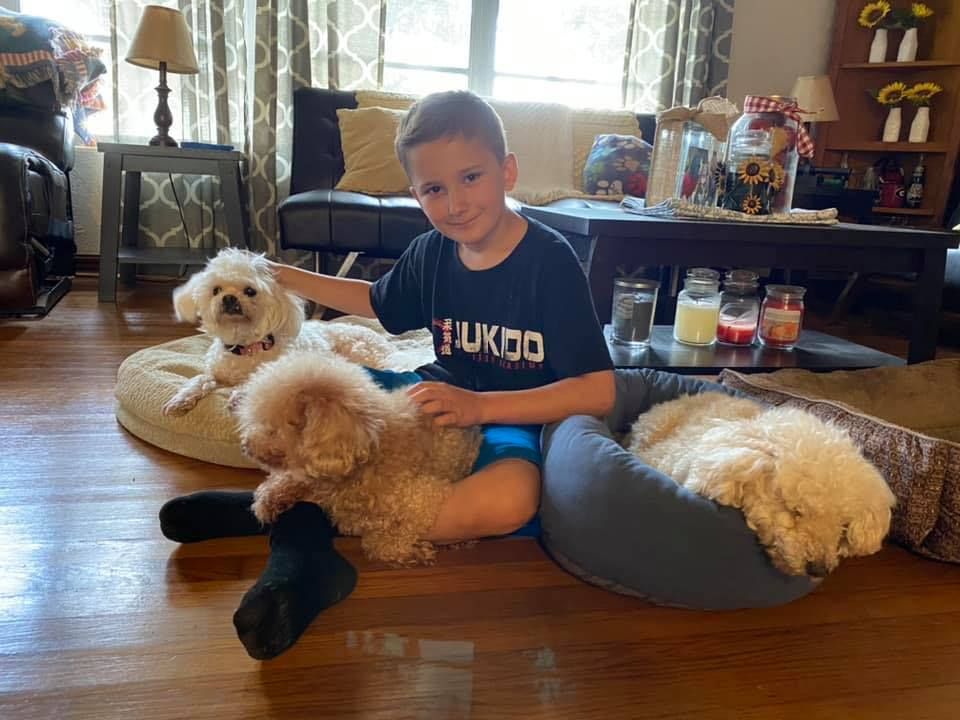Eight-year-old Robbie Gay loves dogs — his favourites are the oldest, mangiest, least adoptable mutt. “There’s something about old dogs that I just like,” Robbie says simply. That’s because he sees himself in them.
In a wonderful story I stumbled across on YouTube. Robbie’s mother explains that Robbie “knows what it feels like not to be loved and cared for. He’s the most hopeful, optimistic, and genuinely caring kid who has absolutely no reason to be that way.” Before he entered the foster system, Robbie was a holy terror, so badly abused that he was twice hospitalized with brain injuries. Then, two years ago, Maria and her husband Charles adopted him.

Robbie has come a long way except for this: Maria says Robbie could not cry. Despite the horrors of his past, or maybe because of them, Robbie was a “stone” until earlier this month. One of Robbie’s old dogs, Buffy, had to be put down. He wanted to hold Buffy until the very end and insisted his mom take pictures of the process, perhaps because he knew what was about to happen. After Robbie finally let go, he told his mom, “I know how it feels not to be loved or cared for and I don’t want any animal of mine to feel that way.” Nor does he want any foster kid to feel that way.
“He is so aware that it could have gone totally differently for him. And in these older dogs Robbie has found a place to practice compassion,” his mom explains.
Someday, Robbie wants to adopt older foster children himself. But until then, to show his commitment and do what he can, he has vowed to adopt as many old dogs as his parents will let him. The current number is six.
Recently they adopted a lame, snaggletoothed Shih Tzu mutt named Molly. Molly’s owner had to go into assisted living, and now Molly has a new home thanks to the sweet little boy who sees his reflection in the eyes of the suffering.
Robbie has experienced a great deal of hardship and pain in his young life, but, in being adopted by a loving couple, he has learned compassion and is determined to be the means for every “animal” — human or otherwise – to know what it means to be loved and cared for. The love he has now discovered in his life Robbie now wants every child and animal to experience.
The Ascension of the Lord is not the marking of a departure but the realization of a presence. Matthew’s Gospel begins with the dawning of Emmanuel: “God is with us”; it concludes with Emmanuel’s promise: “I am with you always, even to the end of time.” It is not an abstract or distant presence; Christ is the centre of our Church in word, in sacrament, in every moment of generosity and every act of compassion we perform and experience. The charge Jesus leaves to his disciples on the mountain of the Ascension is left to all of us two millennia later: we are called to teach, to witness and to heal in our own small corners of the world, from our kitchen tables to our church hall. That’s the “great commission” of Jesus on the Mount of the Ascension: We are now sent to “teach” others the compassion and mercy of God that have blessed our lives; we are to be the means for our communities to experience the love and hope of God that we have come to know; we are to reveal the healing forgiveness of God to the broken and lost that has transformed and healed our own despair and hurt.